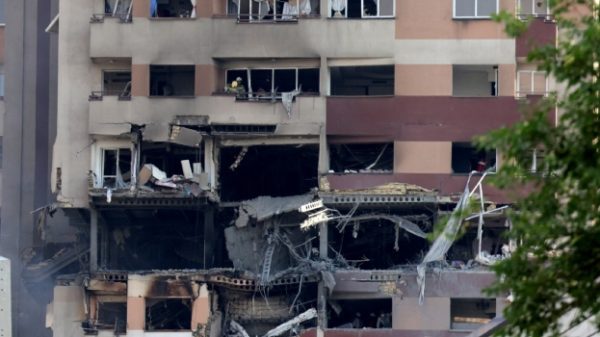Tensions in the Middle East have escalated following U.S. President Donald Trump’s vocal support for Israel’s recent military strike on Iran. In an exclusive interview with ABC News, Trump described the operation as “excellent” and hinted at the possibility of further action.
“I think it’s been excellent,” Trump told ABC’s Chief Washington Correspondent, Jonathan Karl. “We gave them a chance and they didn’t take it. They got hit hard, very hard. They got hit about as hard as you’re going to get hit. And there’s more to come. A lot more.”
Trump’s statement came after Israel launched a coordinated air assault on multiple targets within Iranian territory, an operation reportedly involving over 200 warplanes striking more than 100 locations. The operation, codenamed *Rising Lion*, targeted military installations, nuclear facilities, and residential areas in major Iranian cities, including Tehran.
The Iranian Ministry of Foreign Affairs condemned the strikes as a “blatant act of aggression,” accusing Israel of violating Iran’s territorial sovereignty. In a statement posted on its official X (formerly Twitter) handle, the ministry said, “This morning, the occupying and rogue Zionist regime violated the territorial integrity and national sovereignty of our dear Iran, attacking several locations, including residential areas.”
The Iranian government reported several casualties, including senior military officials and nuclear scientists. Among the dead were General Mohammad Bagheri, Iran’s Chief of the General Staff, and Hossein Salami, leader of the powerful Islamic Revolutionary Guard Corps (IRGC).
“We extend our condolences to the Revered Leader and the noble people of Iran on the martyrdom of these defenders and servants of the homeland,” the ministry added. It also cited Article 2(4) of the UN Charter, which prohibits the use of force against a sovereign state, asserting Iran’s right to retaliate under Article 51.
“The Armed Forces of the Islamic Republic of Iran will not hesitate to defend Iran’s sovereignty with full strength,” the statement read.
In the international arena, reactions have been mixed. The United Kingdom has so far maintained a neutral stance. British Prime Minister Sir Keir Starmer urged restraint, calling on both sides to return to diplomacy. Foreign Secretary David Lammy warned that the region is facing a “very dangerous moment” and stressed the need for immediate de-escalation.
According to The Telegraph, while the UK has not participated in the Israeli operation, it is considering reinforcing its RAF base in Cyprus amid rising tensions. This marks a shift from its more active involvement last October when British jets were placed on alert following missile attacks on Israel.
Global condemnation of Israel’s actions continues to grow. Turkey, Saudi Arabia, and Oman criticized the strike, labeling it an “act of aggression” and a “reckless escalation.” The United Nations Secretary-General, Antonio Guterres, appealed for calm, warning against a deeper regional conflict.
With Trump’s endorsement and the promise of more strikes, concerns are mounting over an expanding conflict. Both Iran and Israel remain on high alert, and the world watches anxiously as diplomatic efforts struggle to catch up with military developments.
